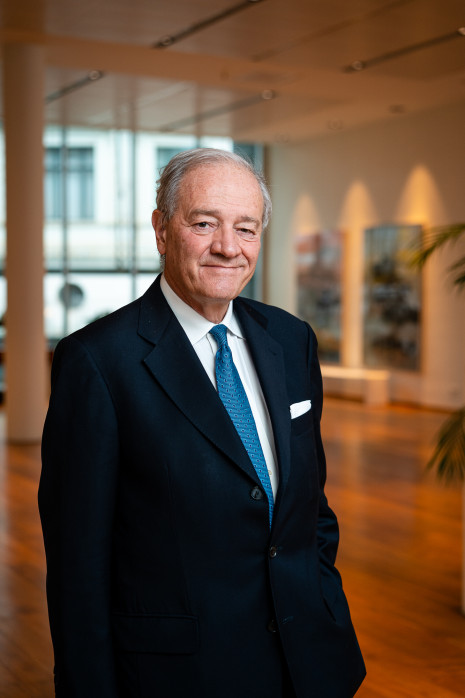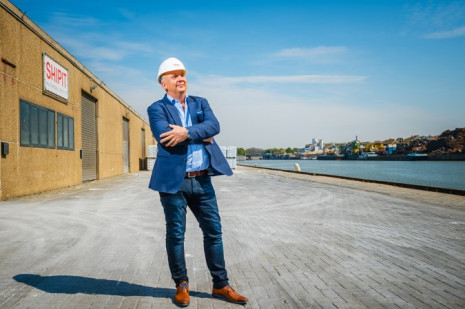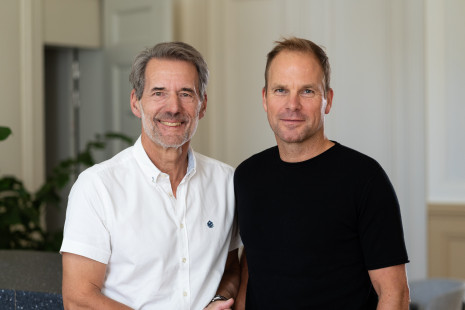PureCycle
Wiebe Schipper
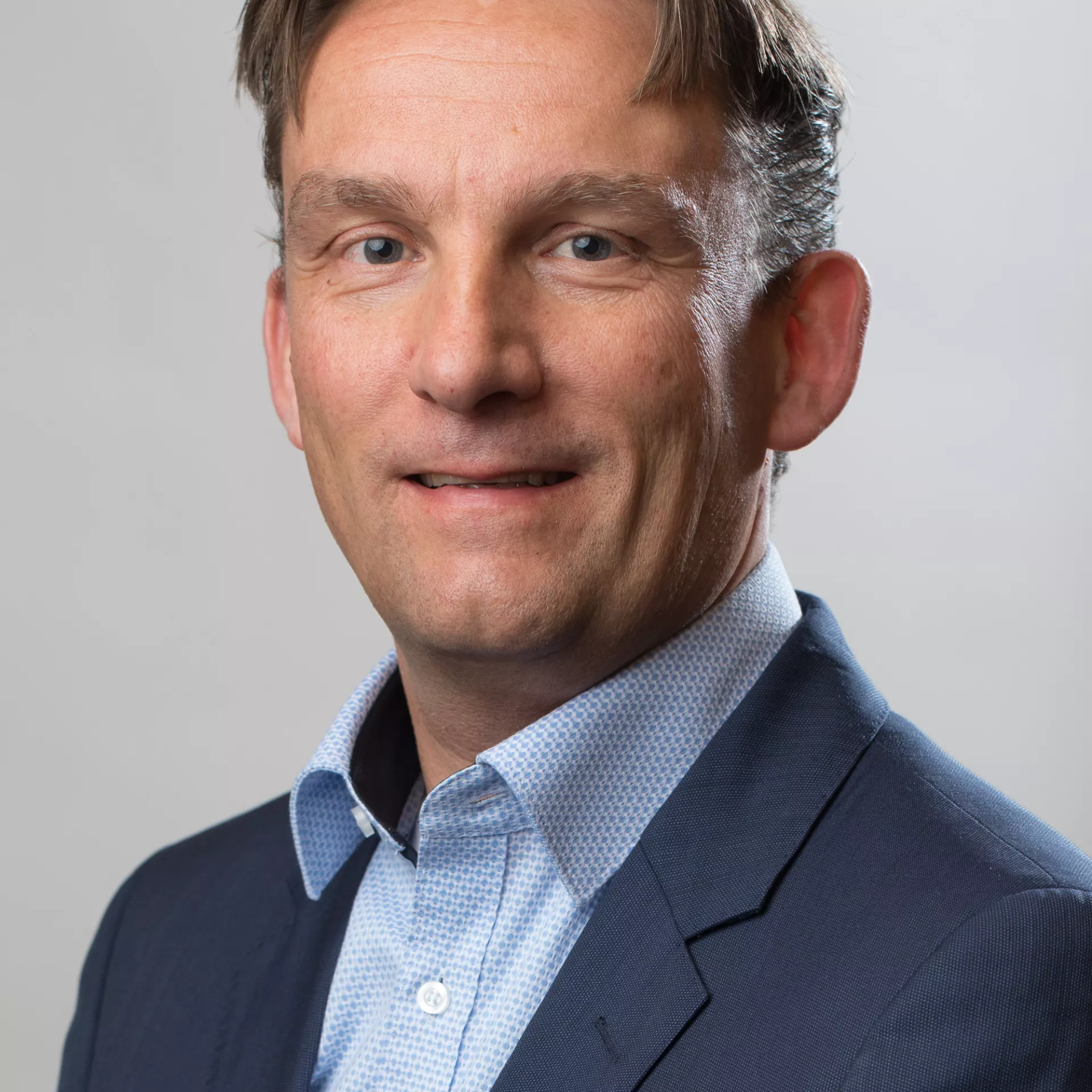
PureCycle is the solution. Antwerp is the answer.
Nice to meet you, Wiebe. Please can you tell us more about PureCycle?
PureCycle is a US start-up founded in 2015 to commercialize a unique technology developed by The Procter & Gamble Company to recycle polypropylene (plastic) waste. PureCycle is a publicly traded company on the Nasdaq Capital Market. We have a strong link with Procter & Gamble because of the technology and because they will use our end-product to produce packaging material.”
What exactly does PureCycle do?
Out of plastic waste, we make recycled polypropylene that is clean and ultra-pure. We remove odours, colour, and contaminants, making it suitable for new plastic products, including food packaging. Companies like L’Oréal are very interested in our product because legislation will soon require them to include more recycled plastic in their packaging. Our process involves no chemical reactions, allowing the same polypropylene material to be recycled multiple times, enabling a truly circular economy. Our process is expected to avoid an estimated 61% of greenhouse gas emissions and saves 86% of energy compared to the traditional fossil fuel route. We plan to have an annual capacity of 59,000 metric tons in phase 1 and we can grow this to almost 240,000 metric tons in Antwerp’s NextGen District.

How did a US company like PureCycle end up in Antwerp
From the start, PureCycle’s strategy has been to establish plants worldwide. The first one was in the US. Europe is the next logical step because of its leadership in recycling, legislation, infrastructure and development. An engineering firm helped us to find a suitable location, which had to be a petrochemical site due to our need for port-related infrastructure. Antwerp quickly emerged as an ideal choice, being the biggest plastics port in Europe and having a robust ecosystem of suppliers, service providers and potential customers.
The most crucial asset was NextGen District, is that correct?
Yes, absolutely. Transforming this area into a sustainable and circular development hub aligns perfectly with our vision. Our goals fit well with these circular and strategic aspirations.”
How important is the help of local entities like the city?
It’s essential. The port, Flanders Investment & Trade and the City of Antwerp are all very supportive and proactive. They understand our needs and expedite assistance, including permits. Unlike in the US, where multiple permits might be necessary for a similar development, we only need one here. This streamlined process is a significant advantage. Of course, there’s a waiting time, but that’s only normal.”
Where do you currently stand in the project?
To request a permit, we need a detailed design of our plant, which we are working on with Arcadis, an Antwerp-based consultancy and engineering firm. We are also engaging with potential suppliers and customers, and those discussions are progressing well. Additionally, we’re considering financing options and talking with banks and investors. We must also ensure that essential utilities like electricity and steam are in place, along with the cooperation of other NextGen District residents.
You’re interacting with many stakeholders. How have they responded?
Banks, politicians, investors - they’re all very positive. PureCycle’s mission was a key reason I joined the company. After 26 years at LyondellBasell, being part of a start-up with such a clear vision and purpose is exciting. It’s a chance to make a tangible difference in the world.”
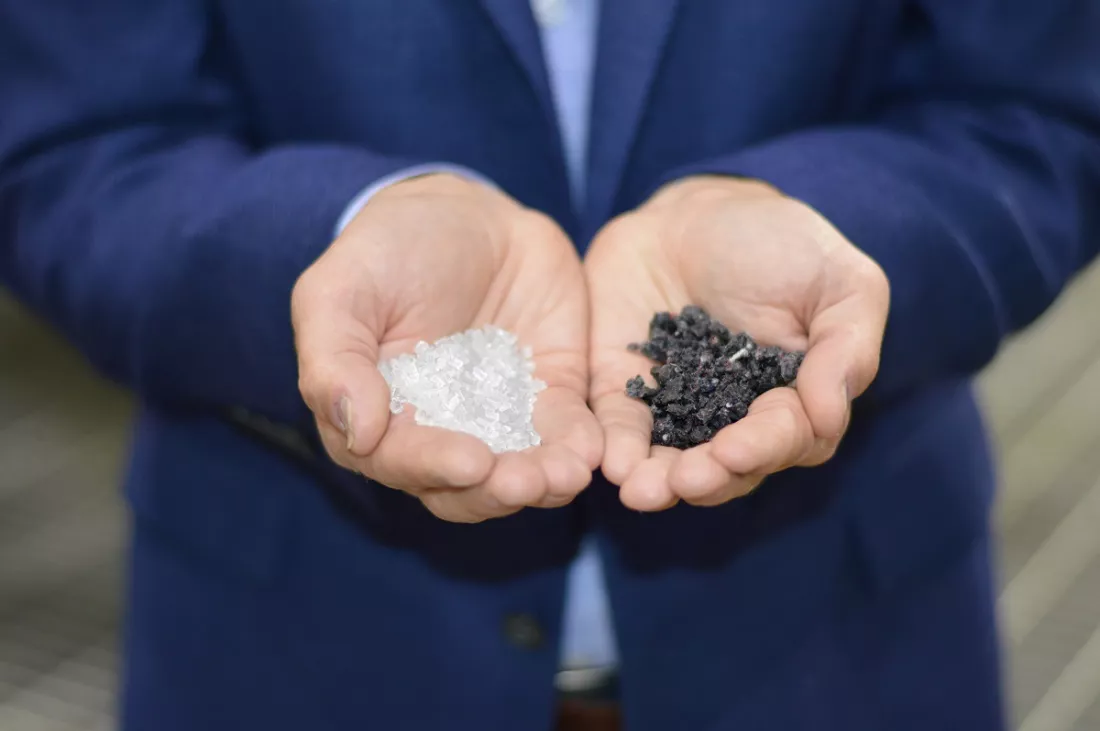
When can we expect the new plant to be operational?
We plan to start construction once we receive the permit, which we anticipate will be in 2025. We’re looking forward to getting going, as the market is eagerly awaiting our product
Will you also be moving to Antwerp?
We haven’t decided yet, but I will certainly be spending significant time in Antwerp. I greatly enjoy the city - the food, the waterfront, and our American colleagues love the history. I often say, ‘PureCycle is the solution; Antwerp is the answer’. People who know about the historical competition between the ports of Antwerp and Rotterdam know this means a lot (smiles).”
